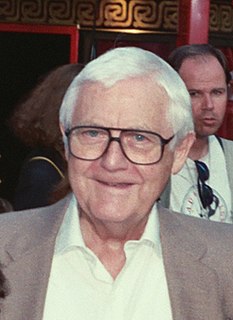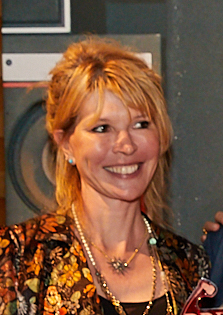A Quote by Robert Wise
You know, people always think if you start out as a film editor, you shoot less footage. Actually, just the opposite is true. I tend to grab as much coverage as I can because as a former editor I know how important it is to have those few frames.
Related Quotes
There's this kind of incredibly mistaken idea that because it's so much cheaper to roll the camera than it used to be and it's so much easier to accumulate a ton of footage, that then you can just go shoot a ton of footage and the editor will make sense out of it. But if you don't have something deliberate made, you're not gonna save it in the editing room.
I worked as an assistant editor, actually, for a few years. That was right when I was just starting to get out at night and do a lot of stand-up, improv, and sketch work in New York. It really is invaluable. I think it pounded into me an awareness of what an editor wants and needs, in terms of clarity of a moment, where and when to start and stop a line.
I always thought the editor should cut the film and so I'll come in and look at the movie. Just because that's the only way I can really see the ideas of the editor, it's really working together. Yes it's a hierarchy, yes I'm the boss, but I like to see and to think about the idea, and it's about us asking, 'do we have to say that?' and, 'how do we make it there?' So it's advising the editor, it's very give and take, it's very free, but in the end, it's wonderful once you get through the first couple of cuts.
My great strength as an editor, I believe, is structure: I know how to reorder a piece, I know how to reach into a jumbled story and extract the important narrative. And I can do both of these things very fast. I also think I've become better at cutting text. You don't always relish it, of course, but by now I know how to distill something without sacrificing its essence.
I don't believe in doing thousands of cuts, then giving it to the editor to make the movie. 'Dump-truck directing' is my reference to that style of moviemaking. You have to know how to cut before you can shoot well. The lack of definition in movies today is appalling. Very few people know how to mount a narrative anymore. If a scene works in one cut, you don't need 10. Or it might need 10. Let's not make it 20.
I think I'm a reporter's editor. Being a good reporter is a specific skill, one I admire and don't possess myself - I appreciate people who know how to ask the right questions, who are excellent researchers, who know how to assemble information, and I enjoy working with them to shape their information into an article. Good reporters tend to be receptive to editing, and to a more collaborative form of writing in general, and you always end up learning more from how they work than you expect you will.
Every time I think I’m getting smarter I realize that I’ve just done something stupid. Dad says there are three kinds of people in the world: those who don’t know, and don’t know they don’t know; those who don’t know and do know they don’t know; and those who know and know how much they still don’t know. Heavy stuff, I know. I think I’ve finally graduated from the don’t-knows that don’t know to the don’t-knows that do.
At the time, liberals didn't understand that they had First Amendment rights. So, I was doing cartoons in this narrative cartoon form about subject surrounding that and as I was turned down by editor after editor at each publishing house, I began to notice on their desks this new newspaper called The Village Voice, which I then went and picked up and thought, well my god, these editors that were turning me down all, whom tell me how much they like my stuff, but they don't know how to market it because nobody knows who I am. If I got into this paper, they would know who I am.
I feel like I have more experience with publishing humor than pretty much any editor I'm going to be dealing with so sometimes I'll get a little bit nuts if I write something I know is good a certain way, and some editor because of some restriction he has and wants to change it that I know is going to make it less funny that'll piss me off and then I'm inclined to go, "Well, hey I've been doing this a long time, maybe you should..." That doesn't happen that often, but I'm more likely to say that now than I would have been a long time ago. Because dammit, I'm infallible!


































